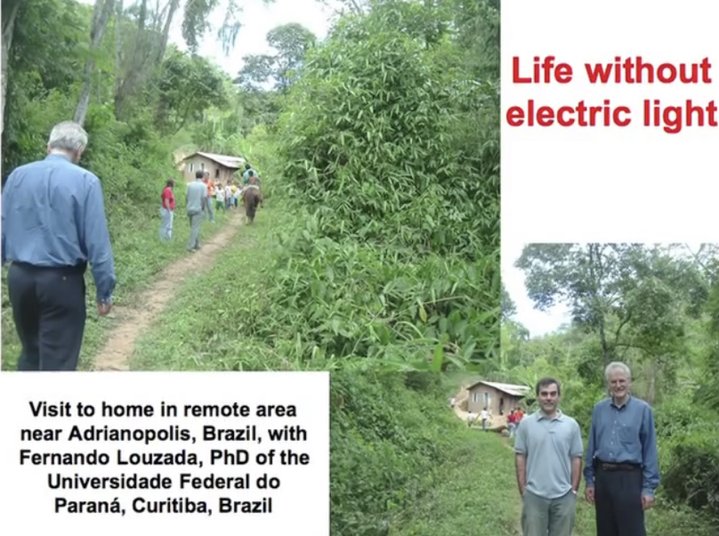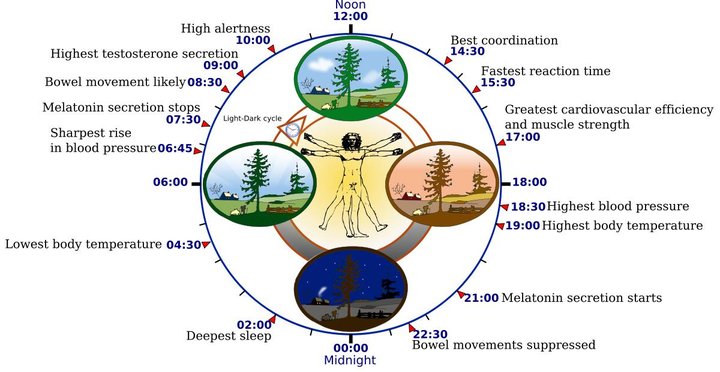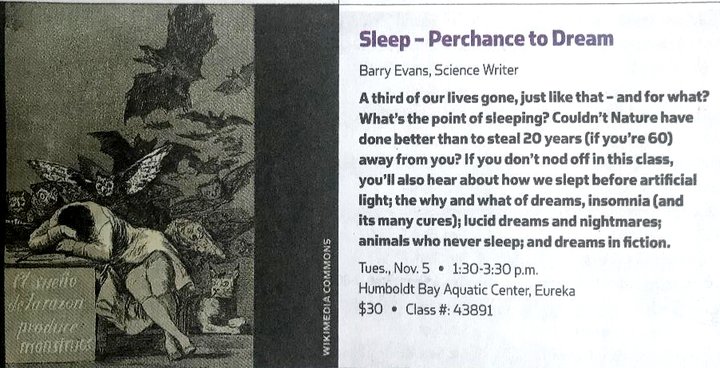Every time we turn on a light, we are inadvertently taking a drug that affects how we sleep.
— Charles Czeisler, chronobiologist
###
In a recent TED talk, the researcher quoted above, who studies sleep patterns around the world, recounted how he was in a village in Brazil with no electricity or lights. He asked a mother who lived with eight family members in a one-room dirt-floor hut, “What do you do when one of your young children wakes up in the middle of the night?” The woman had trouble understanding the question, and the interpreter asked it again. Finally, she got it. “We never wake up during the night!” she said.

Slide from Charles Czeisler’s TED talk
The takeaway from this story isn’t how quaint her response might seem to us, but how she thought the question itself was so odd. Why would anyone wake spontaneously in the night? Human levels of melatonin—the “sleep hormone”—rise naturally as it gets dark and drop at dawn. Our bodies have a natural rhythm, that of day and night. And ever since Thomas Alva Edison invented the electric light in the late 1800’s, we’ve been out of sync…

Human biological clock (YassineMrabet, GNU free document license)
…and sleep-deprived. On average, we slept ten hours a night before artificial light. By 1950, we were down to eight, and now the norm is a little more than six hours. That’s for adults in this country. For school-age kids, it’s even less.
So what? Why is that a problem? If you’re an up-and-coming entrepreneur, where time is money and you see every minute of your waking life as an opportunity, you may well regard sleep as the enemy, “a waste of time, a heritage from our cave days,” to quote Edison (who, not incidentally, was a world-class daytime napper).
Fact is, our bodies need sleep, lots of it, probably more than you’re getting now. (Easy test: If you need an alarm clock to wake, you’re not getting enough.) While our minds may be taking time out when we’re asleep, interspersed with dreams, our bodies are hard at it, cleaning and clearing, scrubbing and re-ordering, filing and organizing. Keeping us healthy. Inadequate sleep results in just about everything that’s bad for us:
High blood pressure (potentially leading to a stroke either by damaging and weakening your brain’s blood vessels or clots in the arteries leading to your brain);
Reduced production of antibodies (four hours of sleep leads to half the usual amount of antibodies produced as a reaction to flu vaccine);
Weight gain (inadequate sleep results in reduced leptin—the hormone that gives you the feeling of fullness—and increased ghrelin, the “hunger hormone;”
Hyperactivity in children;
Increased free fatty acids in blood, leading to a reduction in the body’s ability to use insulin to regulate blood sugar, potentially leading to diabetes.
And on and on. You get the picture. Bottom line: You can’t game your body clock. Too little sleep leads to too little life, aka early death. Ben Franklin wrote, “There will be sleeping enough in the grave.” True enough, but he should have added, you’ll get to that grave sooner if you get too little sleep now.
I’m giving a class on sleep next month as part of HSU’s OLLI program, on the afternoon of Tuesday November 5. If you’re interested in signing up, call OLLI at 826 5880.

CLICK TO MANAGE